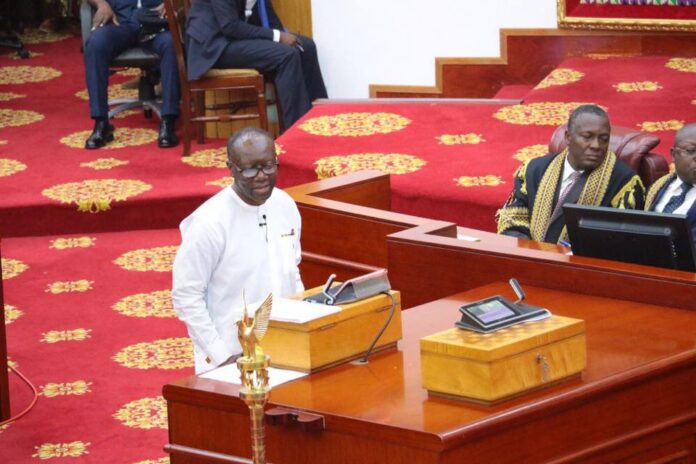Finance Minister to present mid-year budget review today
The Finance Minister, Ken Ofori-Atta, will present the mid-year budget review in Parliament today, Thursday, July 29, 2021.
The budget review, which is in accordance with Article 179 of the 1992 Constitution and the Public Financial Management Act 921, presents the opportunity to revise macroeconomic targets and present a comprehensive economic outlook for the rest of the year.
This is normally based on inflows and outflows within the first six months of the year.
The government is expected to announce projects and programs to create one million jobs over the next few years.
The 2021 Budget, which was themed ‘Economic Revitalisation through Completion, Consolidation and Continuity, sought to carefully balance fiscal consolidation and facilitate the recovery of the economy following the COVID-19 pandemic.
Parliament approved GHS129 billion for the services of the government for the 2021 financial year.
The major talking points from the budget were the introduction of some taxes that were widely criticized by various stakeholders.
The direct tax measures introduced included the 5 percent financial sector clean-up levy, the 30 percent income tax rebates for companies operating in the hospitality sector among others, the suspension of installment income tax stamp and vehicle income tax payments from April to December 2021, and the extension of the exemption of income tax on capital gains made from the realization of securities listed on the Ghana Stock Exchange beyond 2021.
The indirect tax measures included a 5.7 percent increment in prices of petrol and diesel as part of the new levies.
The increment was as a result of the new 10-pesewa Sanitation and Pollution Levy, and a 20-pesewa levy to cater for charges on the country’s excess power capacity.
There was also a 1 percent COVID-19 levy which was a one percentage point increase on both the existing VAT Flat Rate Scheme (VFRS) and the National Health Insurance Levy (NHIL).
The Finance Minister said the taxes were necessary for funding the coronavirus vaccine rollout as well as expanding general health infrastructure.
The Fitch Ratings in its assessment at the time said the slow pace of the consolidation path outlined by the budget statement and by the accompanying medium-term fiscal framework leaves Ghana exposed to a heavy debt-service burden and risks of fiscal slippage.
Since then, Ghana’s debt stock has risen to GHS332 billion with a debt to GDP of 76.6 percent.


